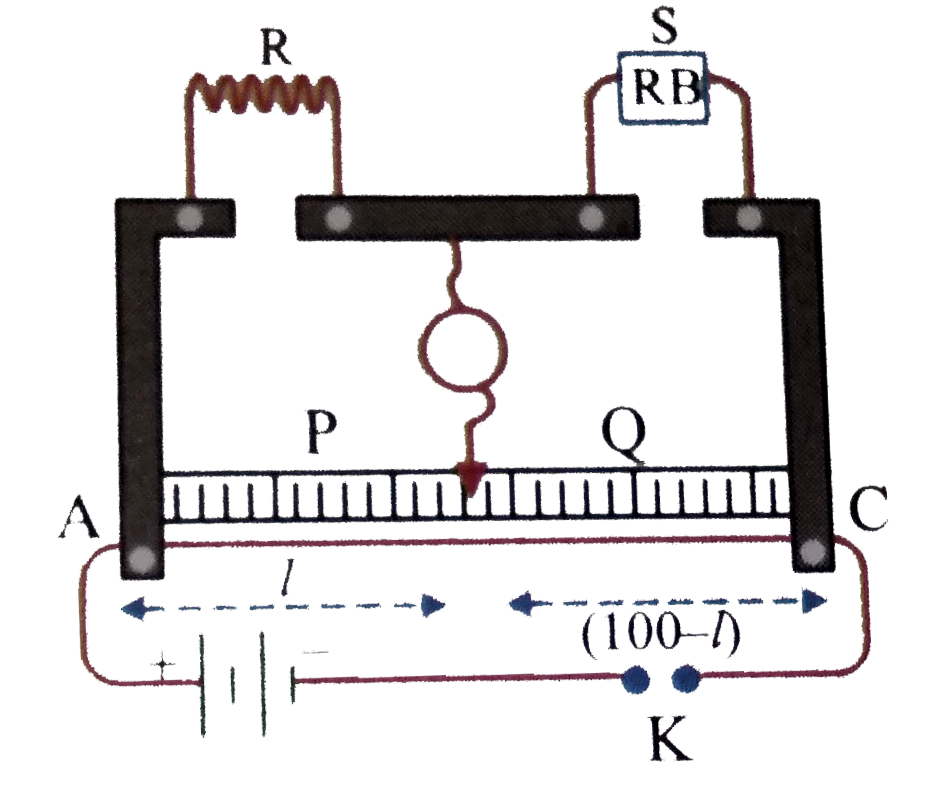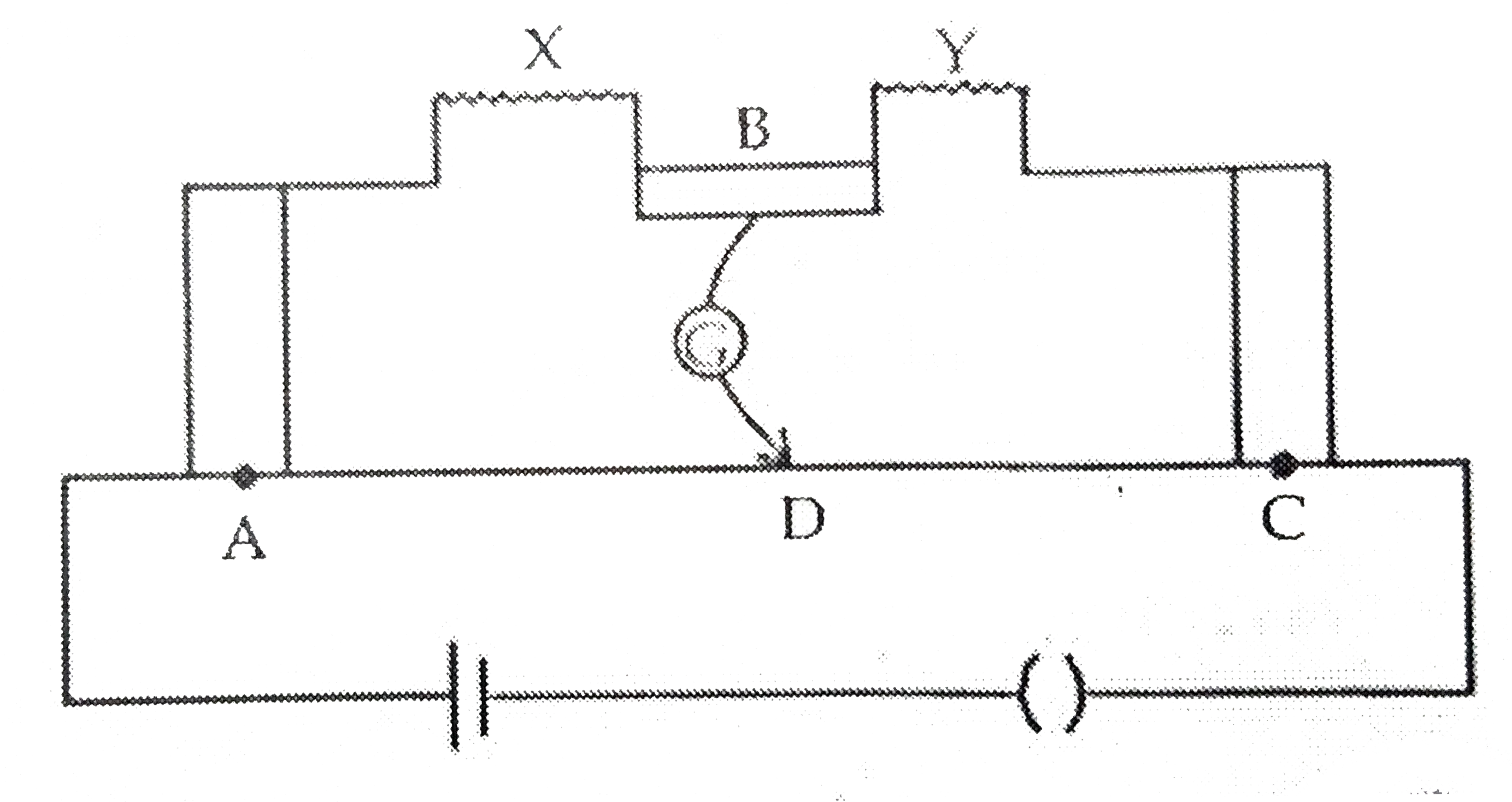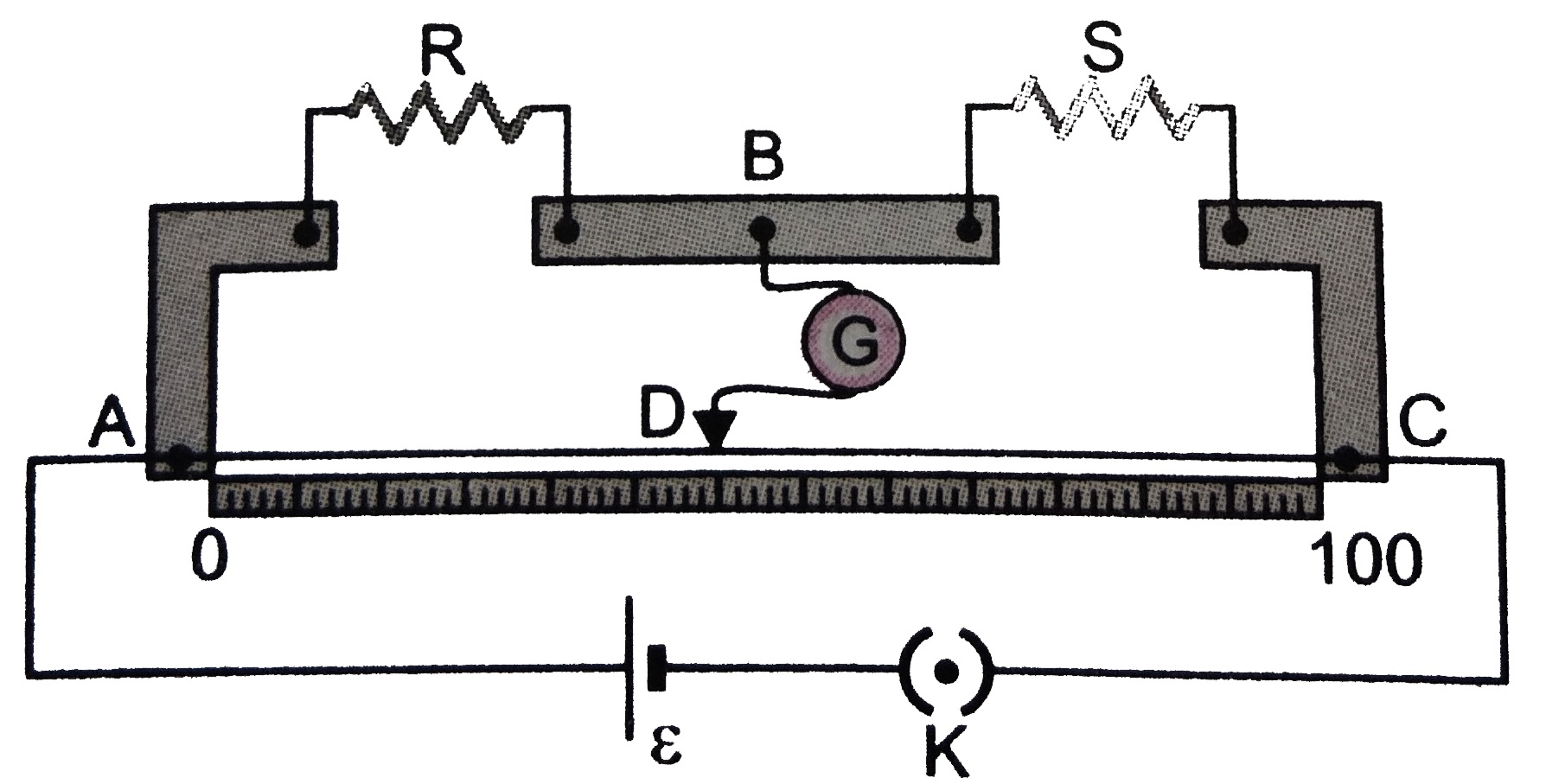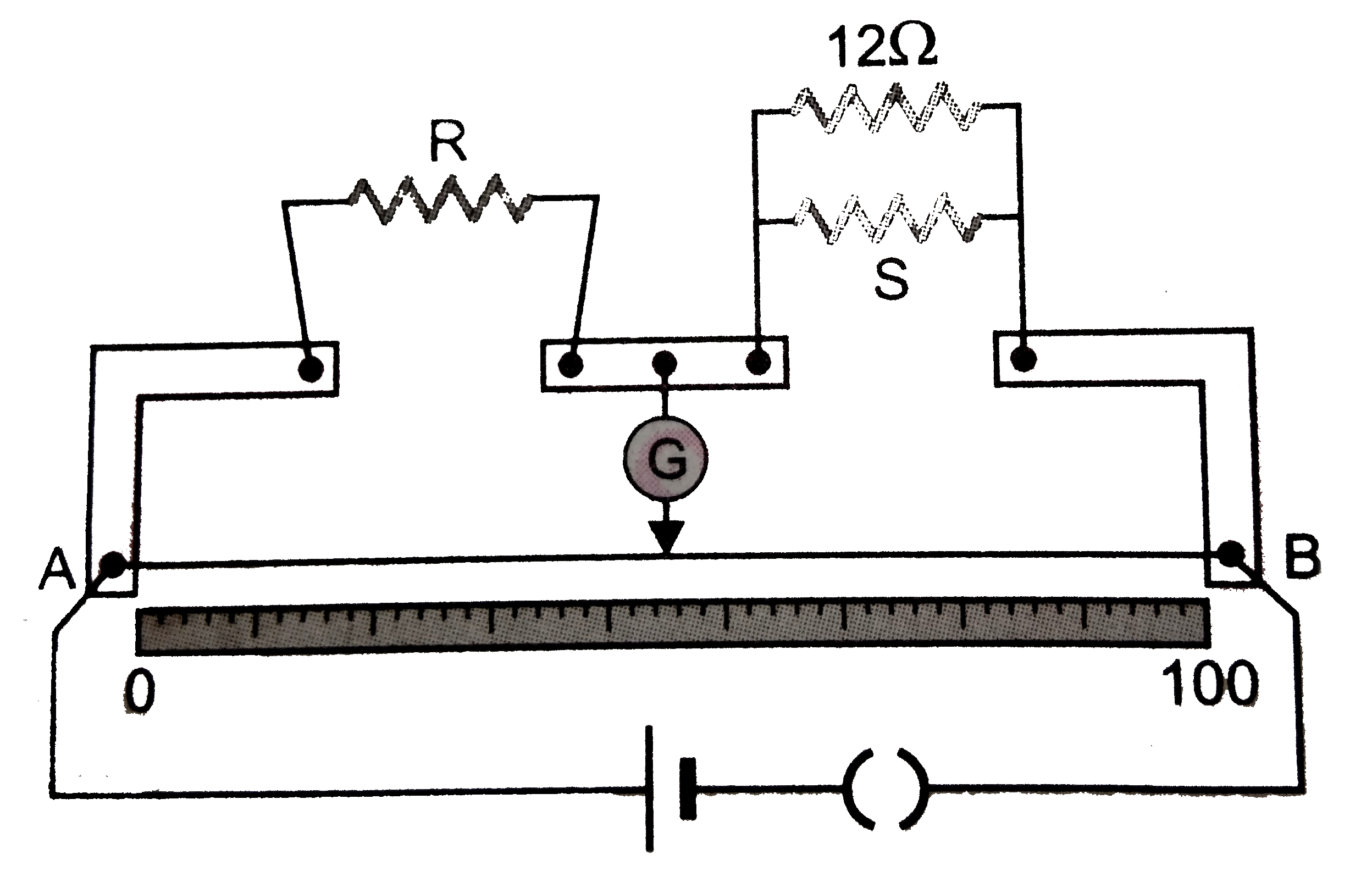A resistance R is to be measured using a meter bridge. Student chooses the standared resistance S to be 100Ω. He finds the null point at l1=2.9cm. He is told to attempt to improve the accuracy. Which of the folllowing is a useful way?
He should measure l1 more accurately .
He should change S to 1000Ω and repeat the experiment .
He should change S to 3Ω and repeat the experiment .
He should give up hope of a more accurate measurement with a meter bridge.
The correct Answer is:C
Step by step video, text & image solution for A resistance R is to be measured using a meter bridge. Student chooses the standared resistance S to be 100 Omega. He finds the null point at l_(1)=2.9cm. He is told to attempt to improve the accuracy. Which of the folllowing is a useful way? by Physics experts to help you in doubts & scoring excellent marks in Class 12 exams.
Updated on:21/07/2023Similar Questions
In a meter bridge, null point is 20cm, when the known resistance R is shunted by 10Ω resistance, null point is found to be shifted by 10 cm. Find the unknown resistance X.
View SolutionIn a meter bride, null point is 20cm, when theknown resistence R is shunted by 10Ω resistence, null point is found to be shifted by 10cm . Find the unknown resistence X.
View Solution
Knowledge Check
In a meter bridge, null point is at l=33.7cm, when the resistance S is shunted by 12Ω resitance the null point is found to be shifted by a distance of 18.2cm. The value of unknown resistance R should be
 A13.5ΩB68.8ΩC3.42ΩD1.42Ω
A13.5ΩB68.8ΩC3.42ΩD1.42ΩA 50Ω resistance is connected to a battery of 5 V. A galvanometer of resistance 100Ω is to be used as an ammeter to measure current through the resistance, for this a resistancer rs is connected to the galvanometer. Which of the following connections should be employed if the measured current is within 1% of the current without the ammeter in the circuit?
Ars=0.5Ω in parallel with the galvanometerBrs=0.5Ω in series with the galvanometerCrs=1Ω in series with galvanometerDrs=1Ω in parallel with galvanometerIn a meter bridge experiment the resistance to be meausred in connected int the right gap and a known resistance in the left gap has value of 50±0.2Ω when the null points is judged to be at 60±2.0 cm. The students notes is judged to be of the bridge wire are not at 0.0 cn and 100.0 cm of the scale makes ends. The value of the unknown resistance should be expressed as
A33.33±1ΩB75±1ΩC75.0±0.9ΩD33.4±0.5Ω
Resistance of a wire is, measured using a meter bridge and the balancing length for the unknown resistance of 10ω in the right gap is 48 cm. Find the value of the resistance. If the end corrections are 0.6 cm and 0.4 cm respectively for the left and right ends, find the corrected value of the unknown resistance.
View SolutionThe figure shows experimental set up of a meter bridge. When the two unknown resistances X and Y are inserted, the null point D is obtained 40 cm from the end A. When a resistance of 10Ω is connected in series with X, the null point shifts by 10 cm. Find the position of the null point when the 10Ω resistance is instead connected in series with resistance 'Y'. Determine the value of the resistance X and Y

View SolutionIn a meter bridge,

the null points is found at a distance of 33.7 cm from A. If now a resistance of 12Ω is connected in parallel with S, the null point occurs at 51.9 cm. Determine the values of R and S.
View SolutionIn a meter bridge, the null point is found at a distance of 40cm from A. If a resistance of 12Ω in connected in parallel with S the null point occurs at 50.0cm from A Determine the value of R and S

View SolutionAn unknown resistance r si determined in terms of a standared resistance R=100Ω by using potentiometer. The potential difference across r is balanced againt 45cm length of the wire and that (r+R) is obtained at 70cm of the wire. Find the value of the unknown resistance.
View Solution
